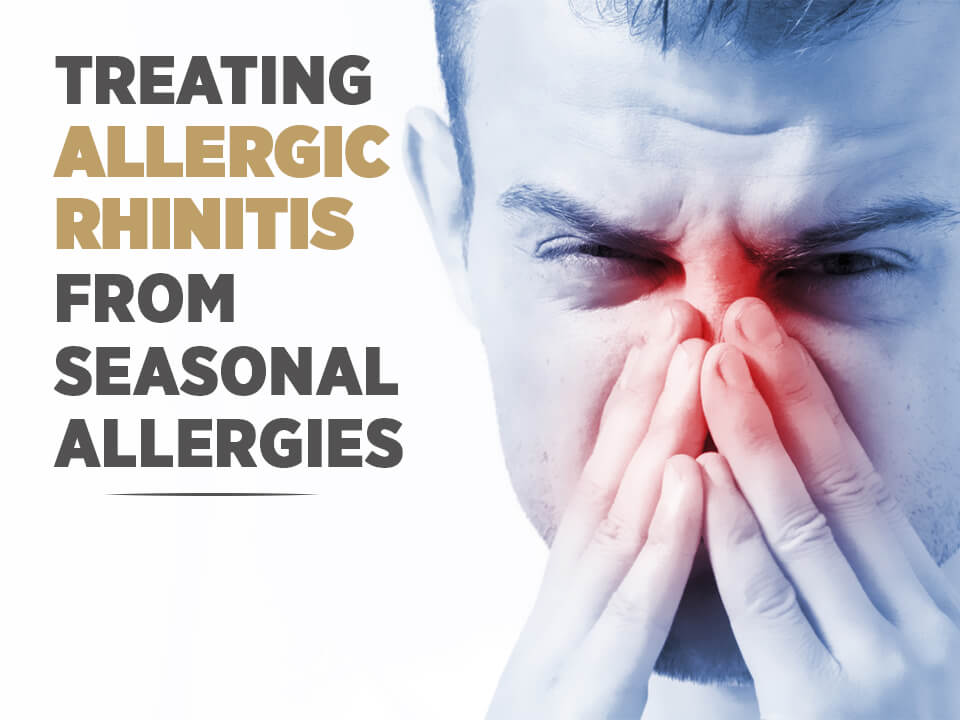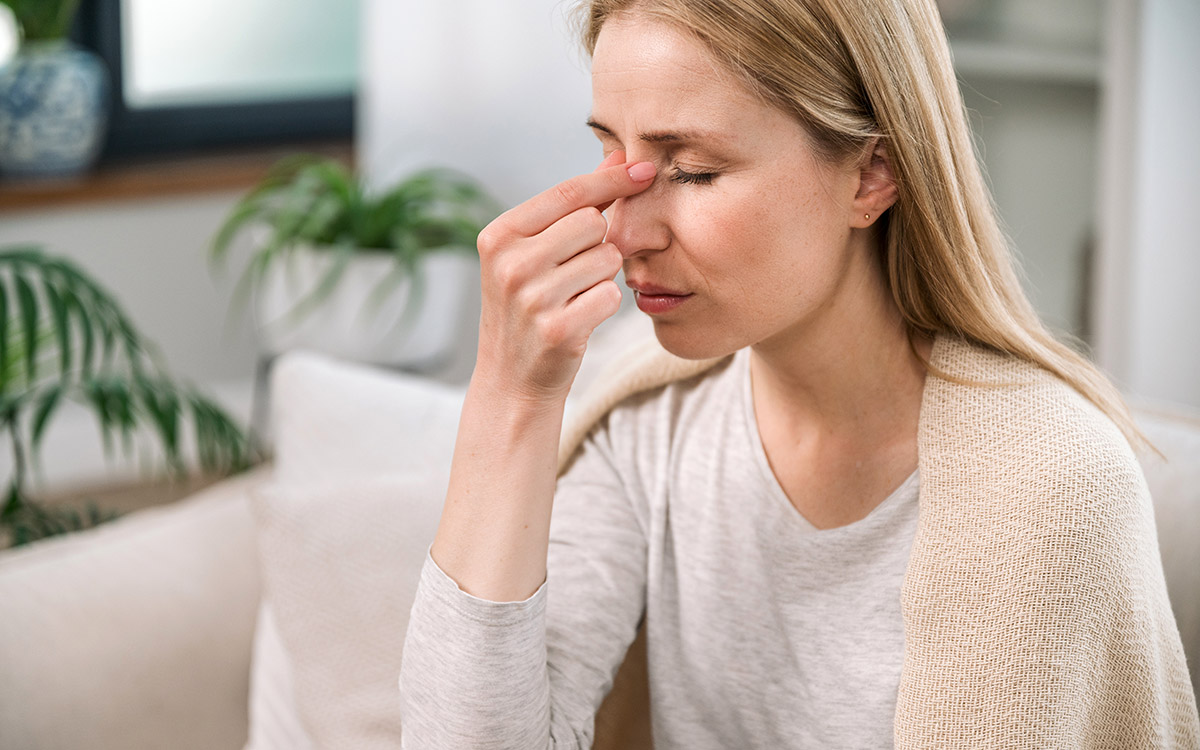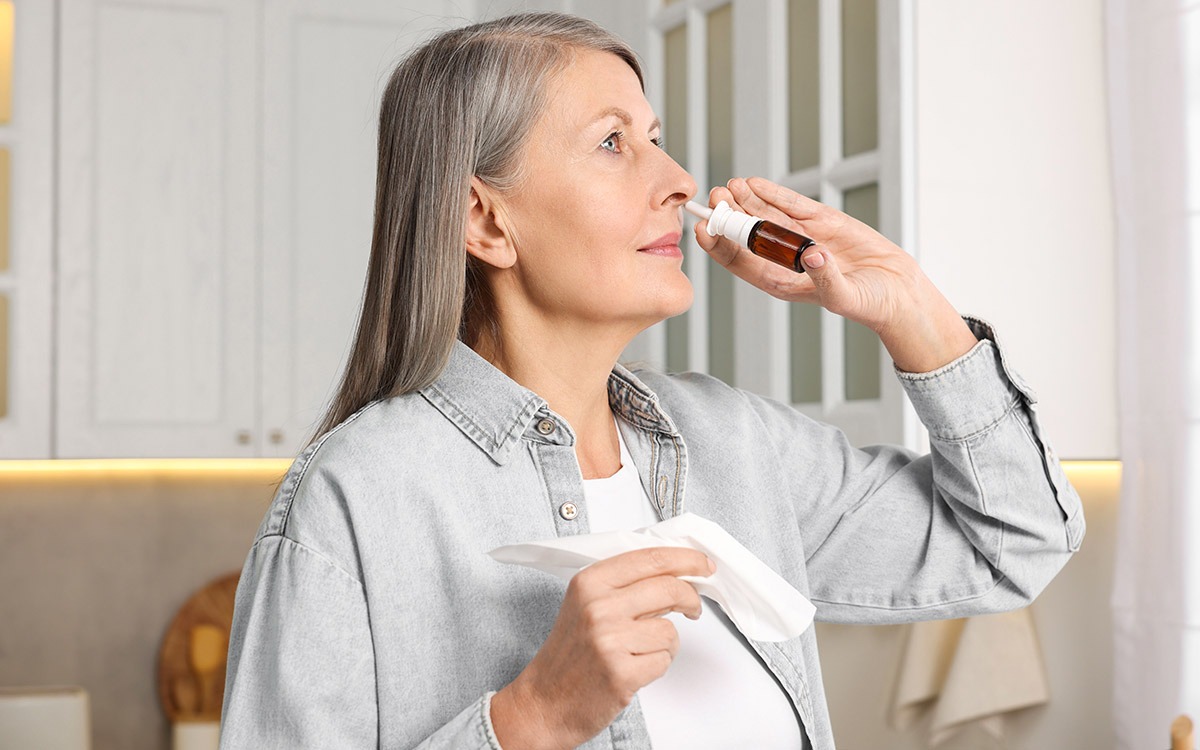Allergic rhinitis or hay fever is a relatively frequent condition. Around 15% to 20% of the United States population suffers from allergic rhinitis. Treatment for allergic rhinitis is determined by the severity of your symptoms or how much they interfere with your daily activities.
Most treatments aim to alleviate symptoms like sneezing, a stuffy nose, or a runny nose. If you have mild rhinitis, you can usually manage your symptoms on your own. If your problems are becoming more severe and impacting your life quality, or if self-help efforts have failed, you should see your doctor.
What Is Allergic Rhinitis?
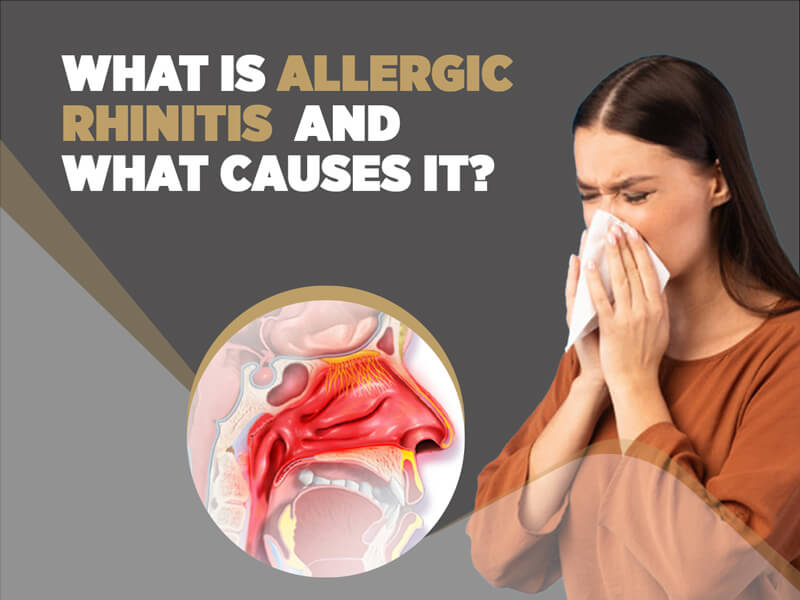
Allergic rhinitis is an allergic response to allergens — small particles in the air. When you inhale allergens through the mouth or nose, your body responds by generating histamine, a natural molecule. Allergic rhinitis is caused by a variety of indoor and outdoor allergens. Dust mites, molds, pet dander, as well as pollen from plants and trees are all common causes. Sneezing, nasal congestion, throat, nose, mouth, and eye discomfort are all hay fever symptoms. Infectious rhinitis, also known as the cold or flu, is not the same as allergic rhinitis. Allergic rhinitis is not spreadable.
When Does Allergic Rhinitis Normally Strike?
Allergic rhinitis can strike at any time of year. When trees & weeds blossom and pollen concentrations are higher, seasonal allergies appear. This could be at any time in the spring, summer, and early fall. Perennial allergies can strike at any time of year. They are caused by common irritants such as animal dander, cockroaches, and dust mites.
Who Is at Risk for Allergic Rhinitis?
Allergies are passed down through generations. You’re more likely to get allergic rhinitis if you have an allergic parent or family member. Allergic rhinitis is more common in people with allergies or eczema.
What Causes Allergic Rhinitis?
When your immune system responds to an allergen in the air, you get allergic rhinitis. Because the irritants (allergens) are all so small, they can readily be inhaled by the nose or mouth.
The majority of people are unaffected by allergens. However, your immune system misinterprets the allergen as a foreign invader if you have rhinitis. By releasing natural substances into your bloodstream, your immune system strives to protect your body by releasing histamines. As the mucose membranes in the nose, eyes, and throat work to remove the allergen, they become irritated.
Many allergens can cause seasonal and perennial allergies, including:
- Dust mites — microscopic insects that dwell in carpets, draperies, bedding, and furniture.
- Tree pollen, grass pollen, and weed pollen.
- Dander from pets (tiny flakes of dead skin).
- Mold spores are a type of spore that can be found in cockroaches, their saliva, and their feces.
Inflammation of the nose and throat can also be caused by food allergies. Get medical attention immediately away if you fear you’re having an allergic response to something you ate. Allergies to certain foods might be fatal.
What Are Allergic Rhinitis Symptoms?
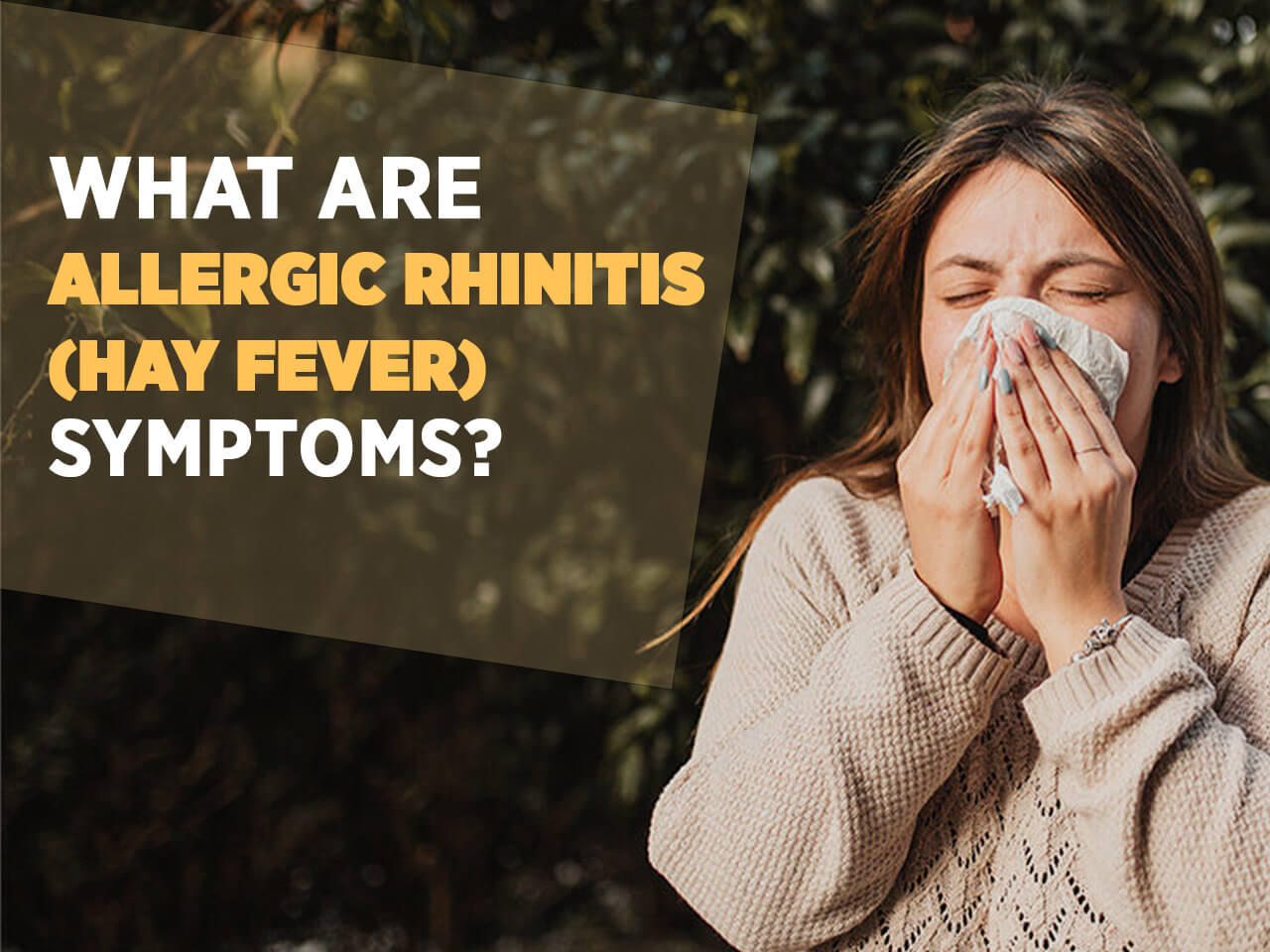
Symptoms of allergic rhinitis (hay fever) can arise at any time of year. In the spring, summer, and early fall, outdoor allergies are at their worst. Weeds and flowers flourish in the summer and pollen counts rise. Because individuals spend much more time indoors in the winter, indoor allergies such as those caused by pet dander and dust mites can get worse.
Allergic rhinitis symptoms include:
- Nasal congestion, sneezing, and a runny nose are all symptoms of nasal congestion.
- Itchy eyes, nose, and throat.
- Headaches, sinus pain, and dark circles beneath the eyes are all symptoms of sinusitis.
- Increased mucus in the respiratory tract.
- Malaise and exhaustion (general feeling of discomfort).
- Mucus dripping down the neck causes a sore throat (postnasal drip).
- Breathing difficulties, wheezing, and coughing.
Self-Help
The signs of mild allergic rhinitis can be treated with over-the-counter antihistamines, such as lengthy non-sedating antihistamines.
Reduce your exposure to the allergy that causes your disease if at all possible, including:
- Learn more about how to avoid allergic rhinitis.
- Keeping your nasal passageways clean
- Nasal douching and irrigation, which involves washing your respiratory system with a salt solution regularly, can also aid by keeping your nose clear of irritants.
This can be accomplished by using a saline spray or a customized nasal spray solution produced by a pharmacy. Little syringes or neti pots are also available to help flush the insides of your nose.
Rinse your nose as follows:
Stand above a sink with one hand cupped in the palm, and a tiny quantity of the solution poured into it. Rep this process until your nose is at ease (you may not need to use all of the solutions)
Some solution may enter your throat through to the back of your nose while you’re doing this.
- Nostril at a time, sniff the water.
- If swallowed, the solution is safe, but attempt to throw out as much as possible.
- Nasal irrigation can always be done when needed, but a new solution should be created each time.
Read More: Budesonide Nasal Spray And Loss Of Smell – Why Should You Worry About It?
Medication
Although medication would not eliminate your allergy, it can help you manage the symptoms. If periodic allergens, like pollen, are causing your symptoms, you should be able to stop taking your prescription once the potential risk has passed. If your results are not satisfactory after two weeks, see your doctor.
Antihistamines
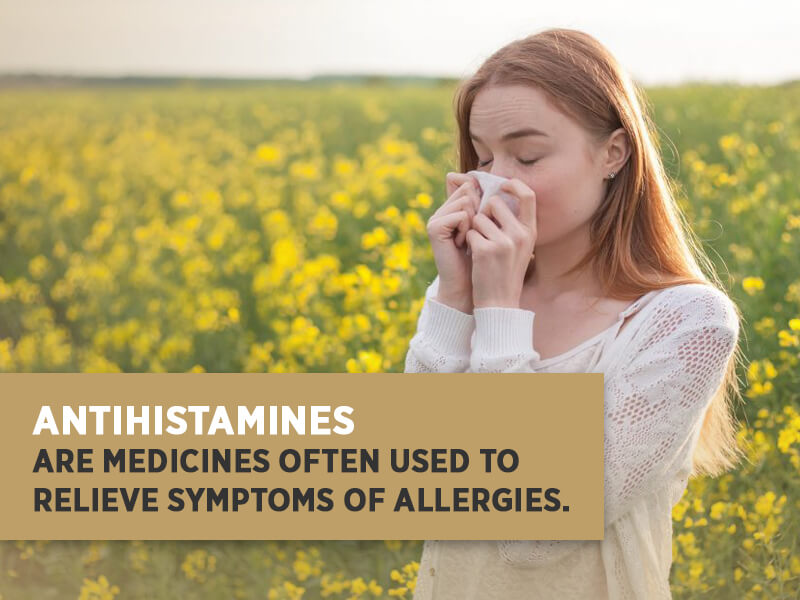
Antihistamines reduce the symptoms of seasonal allergies by preventing the activity of histamine — a substance released by the body when it believes it is being attacked by an allergen. Antihistamine tablets are available without a prescription from your pharmacist. However, antihistamine nasal sprays do require a prescription.
Antihistamines might cause drowsiness in certain people. Before driving or running heavy machinery, see how you respond to them if you’re using them for the very first time. Antihistamines, in particular, can make you drowsy if you drink while taking them.
Corticosteroids
Your doctor may prescribe a corticosteroid nasal spray or drops if you have severe or persistent symptoms with a nasal blockage or polyps. Inflammation and edema are reduced with corticosteroids. They need way more time than antihistamines but have a longer duration of action.
Nasal dryness, discomfort, and nosebleeds are common side effects of inhaled corticosteroids. If you have a particularly severe case of symptoms and require immediate treatment, your doctor may recommend a 5 to 10-day course of corticosteroid tablets.
Add-On Treatments
If your allergic rhinitis/hay fever does not react to medication, your doctor may decide to supplement it with other medications.
Possible actions to take:
- Your corticosteroid nasal spray dose should be increased.
- Using a decongestant nasal spray for a short time in conjunction with your other medications.
- Mixing antihistamine pills with nasal sprays containing corticosteroids and potentially decongestants.
- Using a nasal spray containing ipratropium, which will assist in minimizing nasal discharge and make breathing easier.
- Using a leukotriene antagonist prevents the effects of substances called leukotrienes from being released when in an allergic reaction.
If the add-on treatments do not work, you may be sent to a professional for further evaluation and treatment.
Immunotherapy
Immunotherapy, also referred to as hyposensitization or systematic desensitization, is another form of allergy treatment. It’s just for those with specific allergies, like allergic rhinitis, and should be considered only if your symptoms worsen.
Immunotherapy entails progressively increasing the amount of allergen in your body to make your immunity less responsive to it. The allergen is frequently injected under your upper arm’s skin. Injections are administered at periodic intervals, with the dose gradually increasing.
Immunotherapy can be done with allergy tablets inserted under the tongue containing allergens, such as grass pollen. You’ll need to keep using the injections or pills for up to three years once you’ve found a dose that reduces your allergic response (the maintenance dose).
Immunotherapy should be used only under a professionally-trained doctor’s supervision because it can induce a severe allergic reaction.
Is It Possible To Avoid Allergic Rhinitis?
Allergic rhinitis cannot be prevented, but lifestyle adjustments can make it easier to live with allergies. You can alleviate hay fever symptoms by minimizing allergens as much as possible. To alleviate symptoms, do the following:
- Avoid touching your face or rubbing your eyes or nose.
- When pollen counts are more significant during the spring, summer, and early fall, keep the windows closed in your home and car.
- Dust mite covers should be used on pillows, mattresses, and box springs.
- Pets should be kept off of couches & beds, and doors to rooms you don’t need them to enter should be closed.
- Reduce the number of allergens in the atmosphere by using filters in the vacuum cleaner & air conditioners.
- Hands should be washed constantly, especially after playing with pets.
- Wear a sun hat to keep pollen out of your eyes when you’re outside. As soon as you enter the house, change your clothes.
What Is the Prognosis for Allergic Rhinitis Sufferers?
Allergic rhinitis can be debilitating but does not pose a significant health risk. The majority of patients with allergic rhinitis control their symptoms with a combination of lifestyle adjustments and over-the-counter medications.
Ear infections & sinus infections are more common in those with airborne allergies. You may feel fatigued during the day since hay fever makes it difficult to obtain a decent night’s sleep. If you do have asthma, allergies can aggravate your symptoms.
When Should I Schedule an Appointment With My Doctor To Discuss Allergic Rhinitis?
Although allergic rhinitis isn’t harmful to your health, you should see your doctor to rule out other illnesses like asthma. If allergic rhinitis signs are interfering with your everyday life as well as making it difficult to sleep, get medical help. Your doctor can assist you in determining which allergens are triggering a reaction and suggest therapies to ensure good health.
Bottom Line
Allergic rhinitis, or seasonal allergies, can be a frustrating condition to deal with. These allergies are caused by exposure to specific environmental triggers, such as pollen or mold spores, that cause inflammation and irritation in the nasal passages.
Talk to your doctor today if you are struggling with seasonal allergies and want more information on treating them effectively. With the proper care and support, you can enjoy the warmer weather without having to deal with the frustrating symptoms of allergic rhinitis.
Do you need more information or guidance on how you can benefit from our compounded medicines? At King’s Pharmacy and Compounding Center, we want what’s best for your health and will work to find the right solutions. Our highly-trained pharmacists are here for you if you have unique medical needs that commercially manufactured medications can’t address. With our compounding service, you can get access to alternative dosage forms, discontinued medications, and allergy-friendly options. To learn more, visit https://kingspharma.com/



